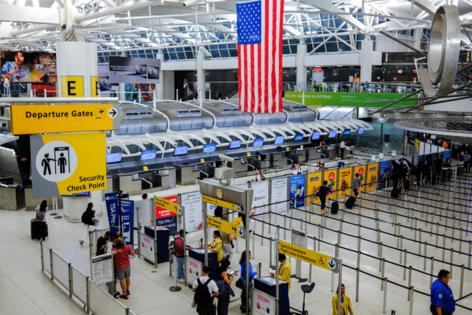US institutes visa bond of up to $15,000 for some foreign travelers
Published in News & Features
The U.S. Department of State has started to require some foreign travelers to post a refundable bond of up to $15,000 under a pilot program that began Thursday, targeting countries with high visa overstay rates or weak identity checks.
For now, only nationals from Malawi and Zambia are included, but the program may be expanded to nations with far more travelers to Florida and the United States. Some Tampa Bay businesses and entrepreneurs worry that, if it does, the program could affect tourism and investment.
The 12-month initiative applies to applicants for short-term business visas and tourist visas.
According to the department’s rule, travelers from those countries must pay the bond before receiving a visa, with the amount determined by consular officers. The bond will be refunded if the traveler departs the United States within the authorized period, never uses the visa, or is denied entry.
Visa holders required to pay the bond may only enter and leave the United States through three designated airports: Boston’s Logan International, New York’s John F. Kennedy International, and Washington’s Dulles International.
The program follows an executive order issued by President Donald Trump earlier this year to strengthen immigration enforcement and border security.
The visa bond program excludes visitors from Mexico, Canada, and more than 40 other countries, most of them in Europe, that are enrolled in the U.S. Visa Waiver Program. The program uses an automated system known as the Electronic System for Travel Authorization, which allows citizens to travel to the U.S. for tourism or business for up to 90 days without a visa.
Entrepreneurs and local business leaders are already watching closely. Cesar R. Hernandez, founder and chief executive officer of Omni Public, a global consulting group in Tampa, said the possibility of extending the visa bond program to other nations could create unease among local industries and investors.
“It would be a better idea if federal officials invested in faster processing, evidence-based compliance tools, and an independent review,” said Hernandez.
A similar six-month visa bond plan was announced in 2020 but was never implemented due to the COVID-19 pandemic.
Santiago Corrada, president and chief executive officer of Visit Tampa Bay, said the pilot program is not expected to affect the local tourism industry. But if circumstances change, his office would adapt with partners to gauge effects and adjust plans, he said.
“Should the program expand, we would work with our strong network of clients and partners in those regions to determine the impacts and adjust our efforts accordingly,” Corrada said. “It’s unclear at this time what effect, if any, a visa bond might have on visitation in the Tampa Bay region.”
A U.S. Department of Homeland Security report found that from October 2022 to September 2023, more than 314,000 visitors failed to depart on time. Several African nations had high overstay percentages. In Latin America, countries with high overstay rates included Colombia, Venezuela, Ecuador, and Honduras.
Tony Selvaggio, a Venezuelan-born Tampa entrepreneur who has several business ties to in South America, said a visa bond requirement “can be a useful tool” to deter those who enter the country with no intention of leaving. However, applying this too broadly could unintentionally discourage legitimate travelers, he said, whose visits help fuel Florida’s economy and strengthen cultural ties.
“The success of a program like this depends on precision,” said Selvaggio.
Erik Hansen, vice president for government relations at the U.S. Travel Association, a national trade group, said the visa bond pilot program appears limited thus far, affecting only about 2,000 applicants.
The association is more concerned by the $250 Visa Integrity Fee, part of the One Big Beautiful Bill Act signed into law on July 4. The fee will take effect later this year across all nonimmigrant visas, including those for tourists, students, and temporary workers.
“If we are to maintain a competitive position in the global travel market, it’s critical that U.S. visa policy reflect both national security priorities and the significant economic value of international visitation,” Hansen said in an email.
_____
©2025 Tampa Bay Times. Visit tampabay.com. Distributed by Tribune Content Agency, LLC.







Comments